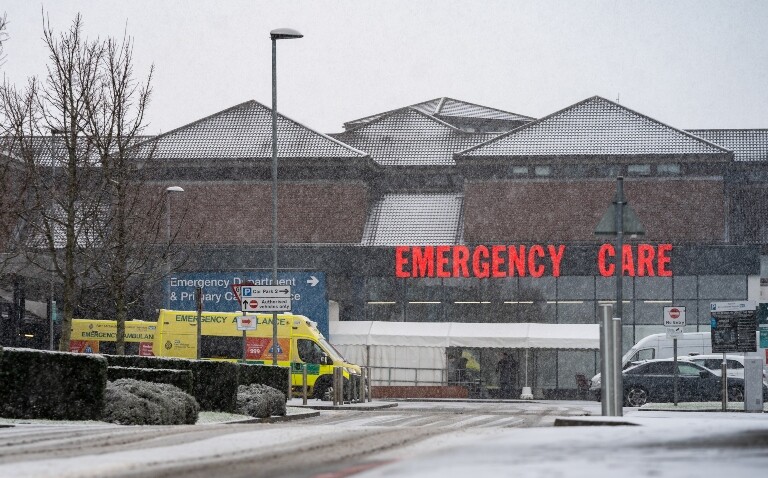Real-world analysis of the first season of vaccination against respiratory syncytial virus (RSV) has shown a dramatic impact on hospitalisation in both older people and newborns.
An analysis done by the UK Health Security Agency (UKHSA) found RSV vaccination was 82% effective against hospitalisation in older people last winter.
It also showed it was ‘highly effective’ in preventing hospitalisation for older people with a chronic respiratory condition and those who are immunosuppressed.
The study of patients across 14 NHS hospitals in England from October to March assessed more than 1,000 75-79-year-olds admitted for acute respiratory infection.
Overall vaccination was found to be 87% effective against admission for severe disease, including needing oxygen supplementation.
A second study also looking at real-world implementation of the maternal RSV vaccine programme found it was 72% effective in preventing hospitalisation for newborns whose mothers are vaccinated more than 14 days before delivery.
Reporting these findings in The Lancet Child and Adolescent Health, researchers said vaccine effectiveness was 58% when including mothers who were vaccinated at any point up to their child being born.
Both maternal and older people vaccination were introduced in September.
Latest figures show that 54.7% of pregnant women giving birth in March had received the RSV vaccine, while uptake among elderly people has been steadily rising with 62.9% of 75-to-79-year-olds now vaccinated, UKHSA said.
Earlier this summer, the Joint Committee on Vaccination and Immunisation (JCVI) recommended that the catch-up RSV vaccination programme in older adults should be expanded to include those over the age of 80 years.
The JCVI had previously said this age group would be reassessed once there was more certainty on the effectiveness of the RSV jab among those over 80 years old and the ‘real-world’ impact of the vaccine.
In February, research found a major drop in RSV-related hospitalisations following vaccination among eligible older age groups in Scotland.
New reassuring evidence
Commenting on the latest RSV-related hospitalisation figures, Dr Conall Watson, UKHSA immunisation consultant said: ‘RSV can be a particularly serious infection for older people, so this new evidence will also give much reassurance that having the RSV jab will greatly reduce their chances of ending up in hospital.’
He added: ‘As a parent and health professional I can’t stress enough the importance of getting the RSV vaccine during every pregnancy.’
Dr Watson encouraged all pregnant women in week 28 of pregnancy or soon after to contact their maternity service or GP practice to arrange a vaccination, adding that women later on in pregnancy who haven’t received the vaccination should also receive one.
Greta Hayward, consultant midwife at the UKHSA, said: ‘The RSV season usually starts in October and while there is no risk-free birth month, babies born in late summer or the autumn are most likely to be admitted to hospital.
‘Hundreds of babies attend emergency departments each day for bronchiolitis through most of November and December. That is why it is so important that over the summer pregnant women reaching 28 weeks of pregnancy, ensure they are vaccinated as soon as possible.’
Last month, NHS England announced that vulnerable premature babies who need extra protection against RSV will receive a long-lasting single injection of nirsevimab as part of a new immunisation programme.
A version of this article was originally published by our sister publication Pulse.










